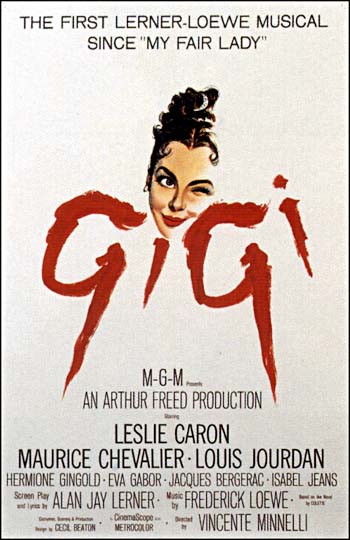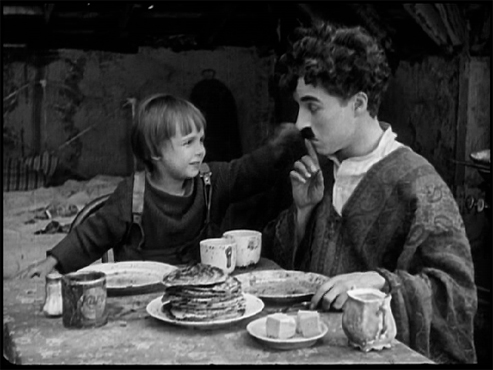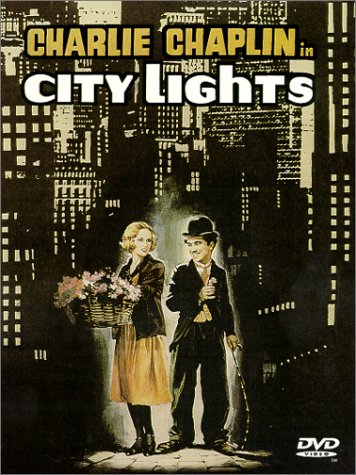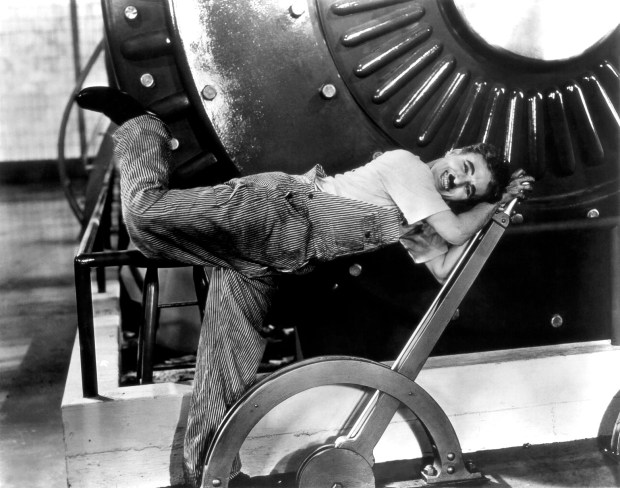A few days ago my curiosity flamed when I saw yet another top movies list. What entertains us defines us, so I thought to myself, what movies define me? Eh. . . Maybe that is a little too philosophical. In all seriousness, I made this list keeping in mind the movies that changed my outlook on the world and stayed with me. These are movies that made me think, caught me emotionally and above all I CANT STOP THINKING ABOUT THEM.
Since this is my list, it is obvious that it will be uniquely me and not like anyone else’s. My goal is to hopefully open people’s minds a little to the diverse and brilliant movies I love. Maybe someone will find something they have never seen before.
A little disclaimer should be in order. I do not watch rated “R” movies. There is only one on this list and it was terribly mis-rated. Otherwise, do not expect movies like Terminator (1984) and Silence of the Lambs (1991). (I have actually seen Silence. My childhood mind still cannot recover from Hannibal Lector eating that guy’s face!!!) Also, I abhor sexual innuendos in film for the sake of entertainment or romance. Not one film on this list has any wanton sexual content.
Without further ado, I hope you find this entertaining. Perhaps it will open a door!
50. Gigi (1958)
The last big time Metro-Goldwyn Meyer musical, Gigi stars Louis Jourdan, Leslie Caron and Maurice Chevalier in the beautiful city of Paris during the turn of the 20th century. I do not like the music and the story is a bit slow. However, I love the prevailing message. The climax demonstrates that the “springtime” love affair never lasts. It is fleeting and true love comes through commitment. I know in our culture marriage is not popular. Many couples simply move in together to see if the relationship will work well enough to marry. Yep. . . the no strings attached philosophy. But it does not work that way. Marriage is hard because it requires work and (again) commitment.

In the film, Gaston (Jourdan) convinces Gigi (Caron) to become his mistress, for that was the only way he knew how to show his love. However, once he takes her to a party and sees the world he would force her into he drags her away and takes her home. But he still loves her. So what does he do? Asks her to marry him. Boom! I loved this end! I cannot get enough of it.
Favorite quote:
[last lines]
[after a long while, Gaston returns to Madame Alvarez’s apartment]
Gaston Lachaille: May I come in?
[Gigi shrinks into a corner, hoping to be spared]
Madame Alvarez: Please, Gaston… no papers… no scandal.
Gaston Lachaille: Madame, will you do me the honour, the favour… give me the infinite joy of bestowing on me… Gigi’s hand in marriage?
[Gigi, filled with relief and joy, draws to Gaston’s side]
Madame Alvarez: [smiles] Thank Heaven!
[“Thank Heaven for Little Girls” plays again]
49. Sabrina (1995)
A remake of Audrey Hepburn’s 1954 film, it stars Harrison Ford as Linus and Julie Ormond as Sabrina. I like its overall gentleness and sincerity. There are misunderstandings between the characters but they feel more genuine than in film’s like How to Lose a Guy in Ten Days (2003). I think it shows love as it really is; that it comes unexpectedly and is not shallowly dependent on romantic gifts and dances. Linus and Sabrina both grew once they take the time to really see one another and learn to move beyond confining dreams and lifestyles. It definitely does not scream at you. In my mind, true love is not connected to drama and lies.
Favorite quote(s):
1. [Fairchild stares balefully at Linus in the rear-view window after Linus has decided to go to France to reunite with Sabrina]
Linus Larrabee: Go ahead, say it.
Fairchild: [haltingly] You don’t… deserve her.
Linus Larrabee: I don’t. I know that. But I need her – and I don’t need anything.
Fairchild: [tries to manuever through traffic, but fails] Time to run for it.
Linus Larrabee: I just want to make her happy.
Fairchild: 13 Rue des Beaux Arts.
2. Linus Larrabee: I’ve been following in footsteps all my life. Save me, Sabrina fair, you’re the only one who can.
48. Amazing Grace (2006)
Based on the life works of William Wilberforce against slavery, it starred Ioan Gruffudd, Benedict Cumberbatch and Romola Garai and takes place throughout the British Abolition movement. This is the film that really got me thinking about slavery. Racism as we think of it now is infinitely different than the Hell so many people underwent until the late 20th century. The age of exploration brought us new knowledge but also succumbed many “inferior cultures” to discrimination.

My favorite scene is when William forces himself to give up Opium. His pregnant wife comes to comfort him and he asks her to tell him about their unborn child. Then the scene switched to him playing with his young son and his wife carrying their second child. Overall, I like this movie’s message and also it’s strong emphasis on God and morality.
Favorite Quote:
John Newton: Although my memory’s fading, I remember two things very clearly. I’m a great sinner and Christ is a great Savior.
47. The Kid (1921)
This is one of perhaps six of Charlie Chaplin’s masterpieces and his first full length film. Chaplin was a genius to say the least. He had a knack for combining great comedy with emotional, tender moments. I like to think that although his personal life did not comply with the innocent image of the Tramp, his movies reflect what he wished for himself: the ideals he thought were worthwhile.
This movie is especially heartwarming because it shows his relationship with a small child and not a woman. When I saw it for the first time I marveled at its simple beauty. It should be recognized more often. I also love its empathetic characters and the lengths they go to be with those they love. (Note: I actually adore silent films so you will see a lot more of them on this list.)
Favorite Quotes:
Not applicable.
46. City Lights (1927)
Charlie Chaplin movie number 2! Surprisingly, this film came out during the “talkies” boom that hit Hollywood after The Jazz Singer (1925) came to theaters. It did extraordinarily well because. . . it’s a Charlie Chaplin film. I like watching his movies with my siblings. They tear their hair out trying to escape sitting through them, but once the film starts rolling they are hooked. The love story between the Tramp and the blind girl is iconic. It tugs at my heart strings to watch how much he sacrifices for her, the lengths he goes to help her and her mother. He is thrown in prison, abused and ridiculed but in the end. . . well you will have to see it for yourself.
My favorite scene would have to be the Tramp’s first exchange with the drunk, suicidal rich man. I think this is a film one must experience for themselves. That is just how silent films are. They are an EXPERIENCE because you have to actually pay attention to what is happening.
(Note 2: Charlie Chaplin not only starred in his films but wrote the script, directed the screenplay and even composed the musical score.)
Favorite Quote:
The Tramp: You can see now?
A Blind Girl: Yes, I can see now.
45. Modern Times (1936)
Seen enough Charlie Chaplin yet? Well, there are more coming. Chaplin pushed the ticket when he released City Lights right when sound films were becoming popular. One would think he was plumb crazy (I love this saying.) to release a silent film a decade after they wore out their welcome. But he did it and it was a hit. This film is just enjoyably clever. It speaks out on issues seen throughout the Great Depression and even touched on the universal need to be accepted by others. Out of all his movies, this is the one I felt that the Tramp was truly and sincerely accepted.
Also, I find this movie hilarious. Every silly moment he worked in the factory I just marveled at his comic genius. The ending was also incredibly satisfying. You really should watch the movie yourself.
Favorite Quote:
Not applicable
44. M (1931)
Film noir‘s roots lie in this film’s brilliant execution, a byproduct of the German Expressionist film Era. Fritz Lang was one of the few directors that transferred well from silent to sound films. Being a true blue German Expressionist film maker, it is guaranteed that rooted through the scenery and plot in all his films are deep philosophical and moral messages. It is no secret that Hilter and Goebbels’s wanted Lang to make films for them. But, Lang was a big-time anti-fascist. So, he made this movie as a warning to the world of what was happening in Germany. I studied Lang’s films for my senior thesis and wished I had room to write about this movie.
The first time I saw M, it bothered me. I think I actually started crying. The movie seemed to scream at me that morality is relative. It all centered on Peter Lorre‘s questionable speech on his motives for killing children. A second look at the film, however, revealed something much deeper. It is a look into the Germany Lang saw; the one letting itself be taken by Nazism. Ebert put it best I think.
. . . the entire movie consists of men seen in shadows, in smokefilled dens, in disgusting dives, in conspiratorial conferences. And the faces of these men are cruel caricatures: Fleshy, twisted, beetle-browed, dark-jowled, out of proportion. One is reminded of the stark faces of the accusing judges in Dreyer’s “Joan of Arc,” but they are more forbidding than ugly. What I sense is that Lang hated the people around him, hated Nazism, and hated Germany for permitting it
This movie has too many layers for me to talk about everything I love about it in one go. I should write a review for it. . . eh maybe.
Favorite Quote:
Hans Beckert: I can’t help what I do! I can’t help it, I can’t…
Criminal: The old story! We never can help it in court!
Hans Beckert: What do you know about it? Who are you anyway? Who are you? Criminals? Are you proud of yourselves? Proud of breaking safes or cheating at cards? Things you could just as well keep your fingers off. You wouldn’t need to do all that if you’d learn a proper trade or if you’d work. If you weren’t a bunch of lazy bastards. But I… I can’t help myself! I have no control over this, this evil thing inside of me, the fire, the voices, the torment!
Schraenker: Do you mean to say that you have to murder?
Hans Beckert: It’s there all the time, driving me out to wander the streets, following me, silently, but I can feel it there. It’s me, pursuing myself! I want to escape, to escape from myself! But it’s impossible. I can’t escape, I have to obey it. I have to run, run… endless streets. I want to escape, to get away! And I’m pursued by ghosts. Ghosts of mothers and of those children… they never leave me. They are always there… always, always, always!, except when I do it, when I… Then I can’t remember anything. And afterwards I see those posters and read what I’ve done, and read, and read… did I do that? But I can’t remember anything about it! But who will believe me? Who knows what it’s like to be me? How I’m forced to act… how I must, must… don’t want to, must! Don’t want to, but must! And then a voice screams! I can’t bear to hear it! I can’t go on! I can’t… I can’t…
43. Lincoln (2012)
I view this as the one triumphant Hollywood depiction of Abraham Lincoln. The American Civil War does not interest me for its battles and statistics. I like the political underbelly that worked non-stop against itself in a time of immense social change. This film shows the White House as it truly was (and is). At the center of everything, was Lincoln the totem in a sespool of chaos. The true battle took place among the politicians.
Daniel Day-Lewis became Lincoln for this movie. I did not see an actor trying to be Lincoln. Somehow, I forgot that I was watching a movie and when Lincoln died the loss seemed impalpable, like losing a best friend. Though many thought it was yet another cheesy Hollywood trick to make audiences give them money, at least Steven Spielberg succeeded in capturing Lincoln the man and the chaotic world he lived through.
Favorite Quote(s):
Abraham Lincoln: [pounds his hand on a table as his cabinet squabbles] I can’t listen to this anymore. I can’t accomplish a goddamn thing of any worth until we cure ourselves of slavery and end this pestilential war! I wonder if any of you or anyone else knows it. I know! I need this! This amendment is that cure! We’ve stepped out upon the world stage now. Now! With the fate of human dignity in our hands. Blood’s been spilled to afford us this moment now! Now! Now! And you grouse so and heckle and dodge about like pettifogging Tammany Hall hucksters!
Abraham Lincoln: Do you think we choose the times into which we are born? Or do we fit the times we are born into?
42. Metropolis (1927, 2001)
I could not decide between the original Fritz Lang masterpiece and the Japanese animated film. I love them both for similar reasons. If you did not know, Metropolis, in both movies, is a city divided into three levels: the privileged who live on the surface, the workers who energize the surface and those who live in the depths. Though each of these levels vary there is no doubt that each addresses the problems that inevitably live alongside such a caste system. Thus is born the inevitable shame of civilization: the age old crime of creating such a thing as an inferior human being.
I eat up movies like these. Both are a visual feast and address philosophical ideas that people like to talk about but hardly every address seriously. How many times has our society created a system with an upper class which abuses lower statuses who live in squalor? (Even in high school it happens.) There are differences in the plot and the characters, as well as their motives for each film. But at the center each is a driving force calling for justice and goodness. Both are a must see.
Favorite Quote(s):
1927- Maria: There can be no understanding between the hand and the brain unless the heart acts as mediator.
2001-
[first title card]
Title Card: “Every epoch dreams its successor.” – Jules Michelet
 41. Judgment at Nuremberg (1961)
41. Judgment at Nuremberg (1961)
Of all the movies I have watched I quoted this the most in essays. It left a powerful impact on me and started my thinking gears. The whole idea is that the truth of what is right and wrong is not overtly complicated. After WWII, it was terribly unclear who truly complied with Hitler’s actions and how much the people knew. The trial’s defendant’s were none other then four German judges who sentenced countless souls to camps, eugenics hospitals and death. By the end, I felt myself shame along with all the audience knowing the defending attorney had pulled me along with his “elusive logic”.
My favorite part is near the end when the defending attorney tries to force a German woman Irene Wallner to admit that she really had a sexual relationship with her Jewish guardian those many years before. As she cries “What are you trying to do?” and insists over and over she is telling the truth, one of the defendants Ernst Jannings stands up and yells to his attorney “Are we going to do this again?”. I could gush forever but I need to save my thoughts for the inevitable review I will write one of these days. If you are a fan of Post-WWII history, I highly recommend this movie.
Favorite Quotes(s):
1. Ernst Janning: There was a fever over the land. A fever of disgrace, of indignity, of hunger. We had a democracy, yes, but it was torn by elements within. Above all, there was fear. Fear of today, fear of tomorrow, fear of our neighbors, and fear of ourselves. Only when you understand that – can you understand what Hitler meant to us. Because he said to us: ‘Lift your heads! Be proud to be German! There are devils among us. Communists, Liberals, Jews, Gypsies! Once these devils will be destroyed, your misery will be destroyed.’ It was the old, old story of the sacrificial lamb. . . What difference does it make if a few racial minorities lose their rights? It is only a passing phase. . . The very elements of hate and power about Hitler that mesmerized Germany, mesmerized the world! We found ourselves with sudden powerful allies. Things that had been denied to us as a democracy were open to us now. The world said ‘go ahead, take it, take it! . . . And then one day we looked around and found that we were in an even more terrible danger. The ritual began in this courtroom swept over the land like a raging, roaring disease. What was going to be a passing phase had become the way of life. Your honor, I was content to sit silent during this trial. I was content to tend my roses. I was even content to let counsel try to save my name, until I realized that in order to save it, he would have to raise the specter again. You have seen him do it – he has done it here in this courtroom. He has suggested that the Third Reich worked for the benefit of people. He has suggested that we sterilized men for the welfare of the country. He has suggested that perhaps the old Jew did sleep with the sixteen year old girl, after all. Once more it is being done for love of country. It is not easy to tell the truth; but if there is to be any salvation for Germany, we who know our guilt must admit it… whatever the pain and humiliation.
2.
Hans Rolfe: I’ll make you a wager…
Judge Dan Haywood: I don’t make wagers.
Hans Rolfe: [chuckles] A gentleman’s wager… in five years, the men you sentenced to life imprisonment will be free.
Judge Dan Haywood: Herr Rolfe, I have admired your work in the court for many months. You are particularly brilliant in your use of elusive logic…
[Rolfe nods with an appreciative smile]
Judge Dan Haywood: -so, what you suggest may very well happen. It *is* logical, in view of the times in which we live. *But to be logical is not to be right*, and *nothing* on God’s earth could ever *make it* right!
[Rolfe wipes the smile from his face]


















